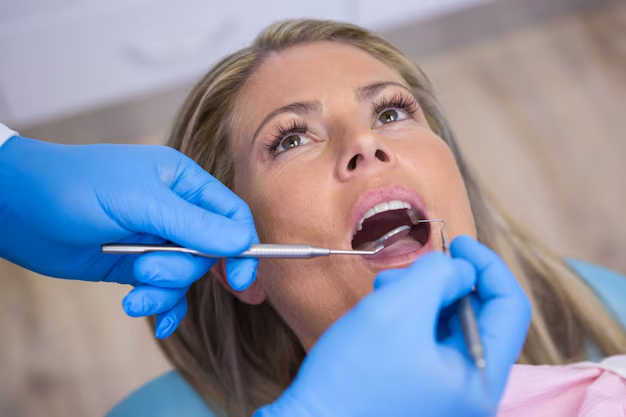Is Oral Surgery Included in Your Medicare Plan? Here's What to Know
Navigating the intricacies of health insurance can be daunting, especially when it comes to understanding what specific procedures are covered. If you're asking, "Is oral surgery covered by Medicare?" then you're not alone—and clarity is crucial as you plan for potential healthcare expenses.
Understanding Medicare Coverage for Oral Surgery
Medicare, the federal health insurance program for people aged 65 and over, does provide a broad range of benefits. However, when it comes to dental care, including oral surgery, the coverage is quite specific. Generally, Medicare Part A or Part B only covers dental procedures that are integral to another covered medical service. For example, oral surgery may be covered if it's necessary as part of cancer treatment or reconstructive surgery following an accident.
Most routine dental work, such as cleanings, fillings, tooth extractions, or regular oral surgeries, are not covered under Original Medicare (Part A and B). This can include common procedures like wisdom tooth removal or dental implants unless they meet the criteria for medically necessary treatment related to a covered medical condition.
Exploring Additional Coverage Options
To manage costs associated with dental care, including oral surgery, many Medicare beneficiaries consider Medicare Advantage Plans (Part C). These plans are offered by private insurance companies and often include additional benefits like vision, hearing, and dental coverage, which Original Medicare does not provide. Reviewing different plans during the enrollment period can help you find a Medicare Advantage Plan that addresses your dental health needs.
Financial Assistance for Dental Procedures
For those who find themselves needing oral surgery but are faced with expenses that Medicare or their Advantage Plan does not cover, there are various financial assistance options available:
- State and local health departments: Some offer programs or connect individuals with resources to assist with dental care costs.
- Nonprofit organizations: There are several charities and nonprofits dedicated to helping those who cannot afford necessary dental care.
- Community health centers: Many provide dental services at lower costs, often on a sliding scale based on income.
Considering Other Financial Support Tools
If budgets remain tight, exploring broader financial assistance programs might provide relief. Options include:
- Government aid programs: Medicaid can sometimes offer dental coverage if you qualify. This varies by state, so checking your local Medicaid office for specifics is essential.
- Credit card solutions: Specialized healthcare credit cards can offer deferred interest plans, allowing you to spread out payments over time for oral surgery or other dental expenses.
- Educational grants or scholarships: While primarily education-focused, some grants have provisions for healthcare that may apply if you are a student or are enrolled in an academic institution.
- Debt relief options: Consulting with a financial advisor may help explore debt consolidation or relief options, ensuring you manage any healthcare-related debt effectively.
Summary of Assistance Options
To support your journey in acquiring necessary oral surgery or dental care, consider these resources:
- 💊 Local Health Departments: Check for dental assistance programs.
- 🤝 Nonprofit Aid: Seek assistance from charities like Dental Lifeline Network.
- 🏥 Community Clinics: Visit for affordable services.
- 🏦 Healthcare Credit Cards: For manageable payment plans.
- ⚖️ Debt Relief Services: Financial advice and consolidation options.
While Medicare coverage for oral surgery is quite limited, understanding your options and taking advantage of additional resources can provide paths to better manage and finance necessary care. Take the time to explore these avenues—your health and financial well-being are worth the effort.

Related Topics
- a Medical Provider That Accepts Medicare Assignment Must
- a Medical Provider That Accepts Medicare Assignment Must Quizlet
- a Medicare Patient Received Treatment That Isn't Covered By Medicare
- a Medicare Patient Receives Treatment That Isn't Covered By Medicare
- a Medicare Supplement Basic Benefit Is Quizlet
- a Medicare Supplement Companies
- a Medicare Supplement Policy Is Quizlet
- a Medicare Supplement Policy Must Not Contain Benefits Which
- a Patient Received Treatment In August Medicare
- Am I Eligible For Medicare
